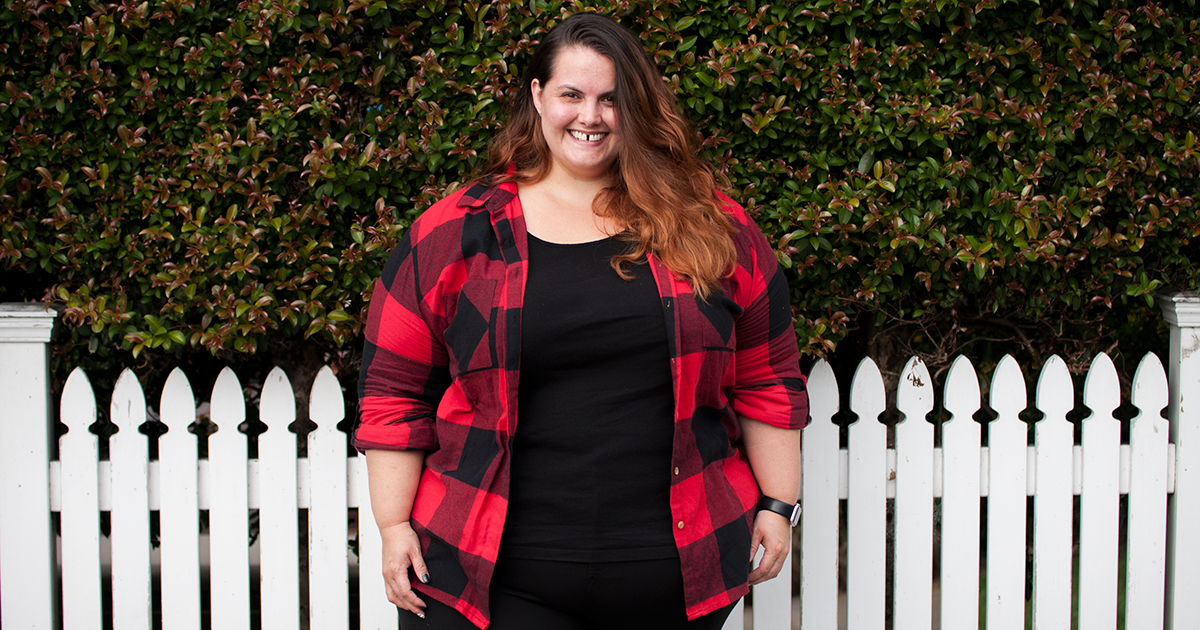
The Warehouse Group received a B- grade in this year’s Ethical Fashion Guide
The Ethical Fashion Guide for 2019 has just been released, and like last year there are a number of mainstream plus size brands included. I hope we’ll see that number continue to grow as the demand for ethical plus size fashion rises, and we as consumers ask for more transparency from the brands we shop with.
We have become increasingly aware of where our clothes come from, since the collapse of the Rana Plaza building in Bangladesh in 2013. We want to know who is making our clothes, where they are being produced and in what conditions.
For a long time, I thought shopping ethically was out of my reach because of a lack of availability in my size (not to mention the added expense). Through last year’s Ethical Fashion Guide I found that there are brands at a number of price points who rate pretty well, including Kmart (B+), ASOS (B) and The Warehouse Group (B-). Having this information available means that I can make a better informed decision about who I shop with and encourage my fave brands to be more transparent and improve their processes.
How the report works
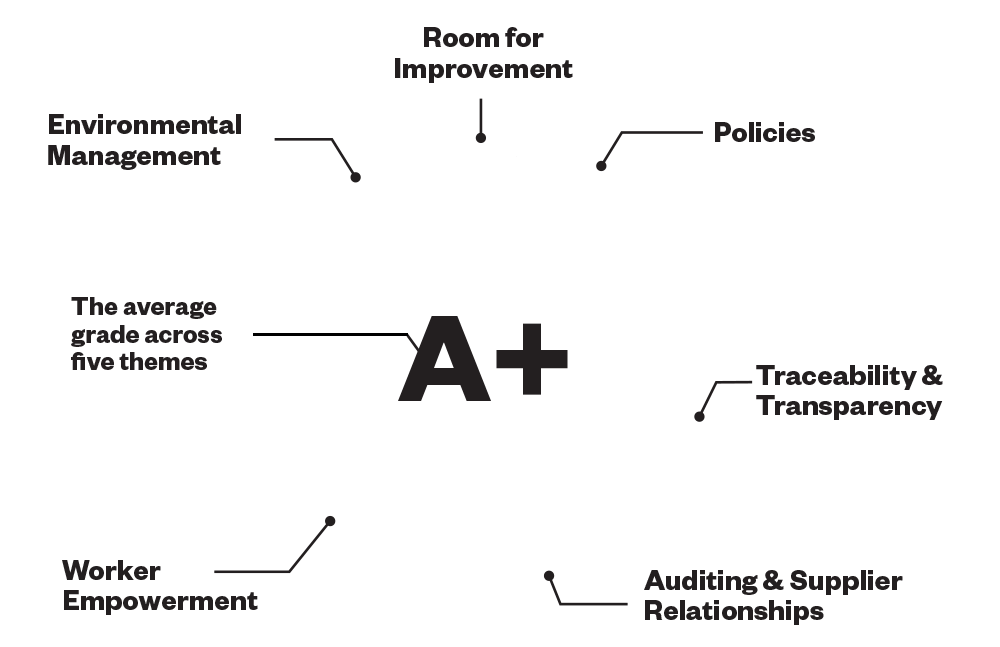
This year, 130 companies representing 480 brands were assessed on five areas: Policies; Traceability and Transparency; Auditing and Supplier Relationships; Worker Empowerment; and Environmental Management. These areas are assessed across three stages of the supply chain: raw materials (for example, cotton farms), inputs production (production of fabrics) and final stage production (suppliers who put the clothes together). An overall grade from A+ to F was given to each company, based on the assessment of the five areas.
Like last year, there are a number of companies marked with a * who have chosen not to participate in the research. The company has still been assessed on publicly available information because if companies do not disclose what they are doing to ensure that workers are not exploited in their supply chains, or are unwilling to do so, then it’s almost impossible for us as consumers to know if the company is doing enough to minimise these risks. I hope that the plus size companies who haven’t provided information as part of this research do make this information available in the future, either by participating in this research or by publishing their own policies on sustainable and ethical practices for their customers to read and make an informed decision. The Warehouse has done this for a few years and I think it’s great that they make that available!
If your favourite brand/store isn’t included here or opted to not participate, get in touch with them. Let them know that as a customer, you would like to see them be transparent about their supply chains. Transparency helps us as consumers know where our clothes are made and in what conditions, and holds brands accountable. If you’re disappointed in the score your fave brand/store got, reach out to them by letter or on social media and let them know. It might feel like you’re one small voice, but our small voices do add up, and I hope that brands are listening. 38% of companies saw an improvement in their grade from the 2018 report, which is wonderful.
How plus size brands stacked up in the 2019 Ethical Fashion Report
I was pretty impressed to see a lot of mainstream plus size brands listed in this year’s report. I think encouraging transparency and pushing brands to improve their practices is really important.
City Chic improved from a C+ to a B+ grade, and The Warehouse Group improved from a C to a B- grade which was great to see. Other plus size brands included ASOS (B), Autograph (D), Boohoo (C-), Crossroads (D), EziBuy (D+), menswear brand Johnny Bigg (C+), Kmart (B+), Millers (D), Peter Alexander (C+), Postie (C), Pretty Little Thing (C-) and The Iconic* (C+). Farmers moved from a D- to a F which is really disappointing because their grade was based on the fact that they chose not to participate and didn’t have enough info publicly available. As one of our biggest department stores I wish they’d be transparent about their practices – whether it’s by participating in this research or by publishing their own policies on sustainable and ethical practices for their consumers to read.
Last year New Zealand plus size brand K&K didn’t participate and didn’t have a lot of publicly available info about their sourcing, so received an F grade. After the 2018 report was published, K&K reached out to let me know that they are committed to ethical sourcing, and said that they would work to have more publicly available information that will ensure a more accurate grade for 2019. This year they received a C- grade. Still a bit of work to do, but it’s a great start and leaves me hopeful that they will continue to be transparent about their processes and continue to improve.
You can download your copy of the Tearfund Ethical Fashion Guide here. I highly recommend taking a look at the full report as well. It’s interesting to see how your favourite brands stack up and how they rated in each area. There were a few surprises, and I was disappointed to see that there were some who opted out of participating and some that just straight up had a lot of room for improvement (including some who received a lower grade than last year).
One of the biggest concerns for me, the thing that really stood out from the research, was around wages. Only 5% of companies could demonstrate that they were paying a living wages to all workers at their final stage of production. That’s not good enough. I deserve to be paid a decent wage for my job, and so do the people who are making our clothes.
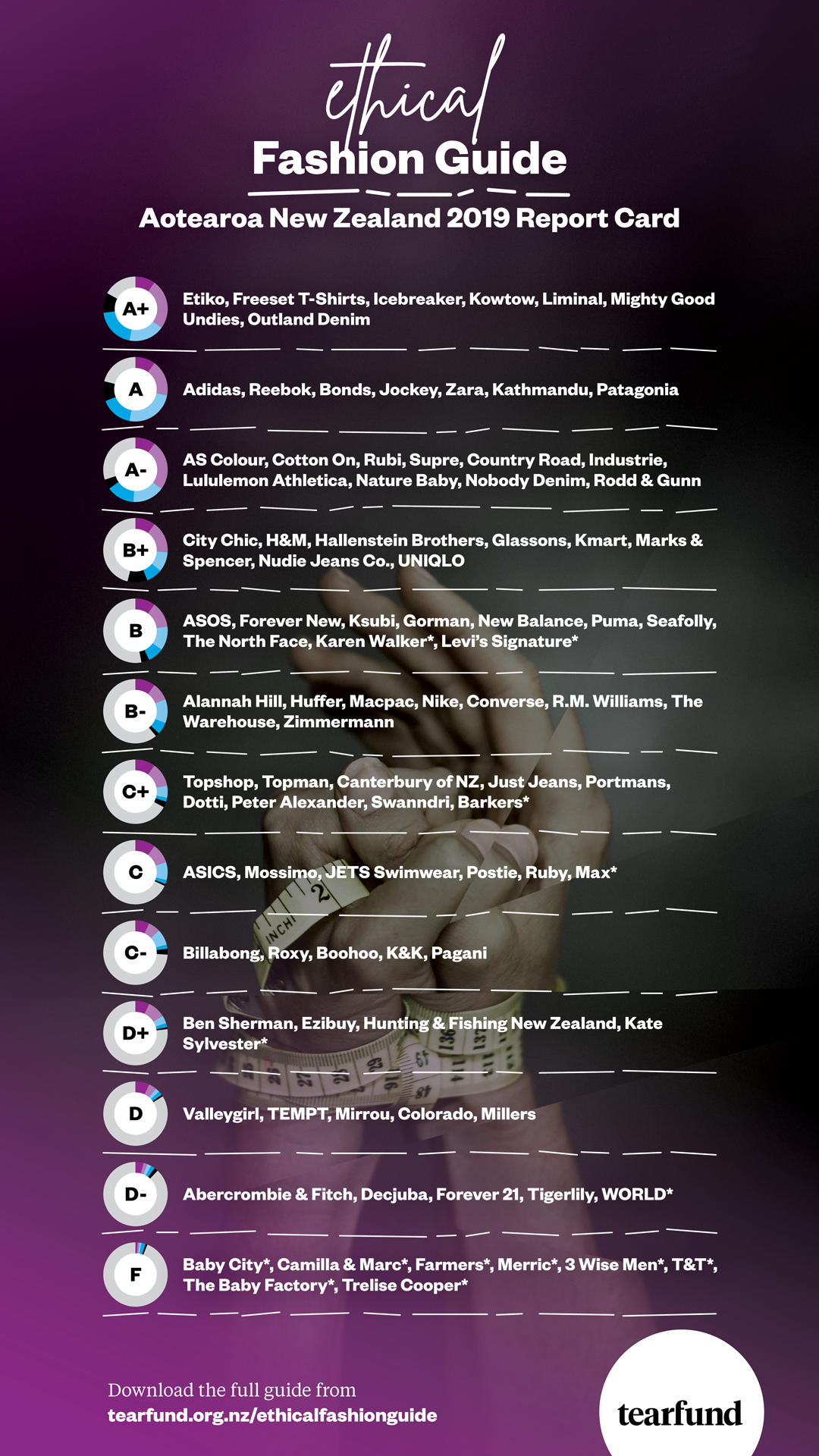
I’m not here to judge anyone who shops with the brands that received a bad grade. As I said last year, I shop with many of them myself. I’m sharing this because I think having public accountability is a great thing. It means we as consumers can make informed decisions and encourage companies to do better.
How did your favourite brands stack up? Any surprises?
Was there someone not included that you’d like to see in next year’s guide?

Some of the links on here are affiliate links. If you buy something through an affiliate link, it won't cost you anything extra, but I'll get a small commission. Your support is greatly appreciated and helps keep This is Meagan Kerr running!

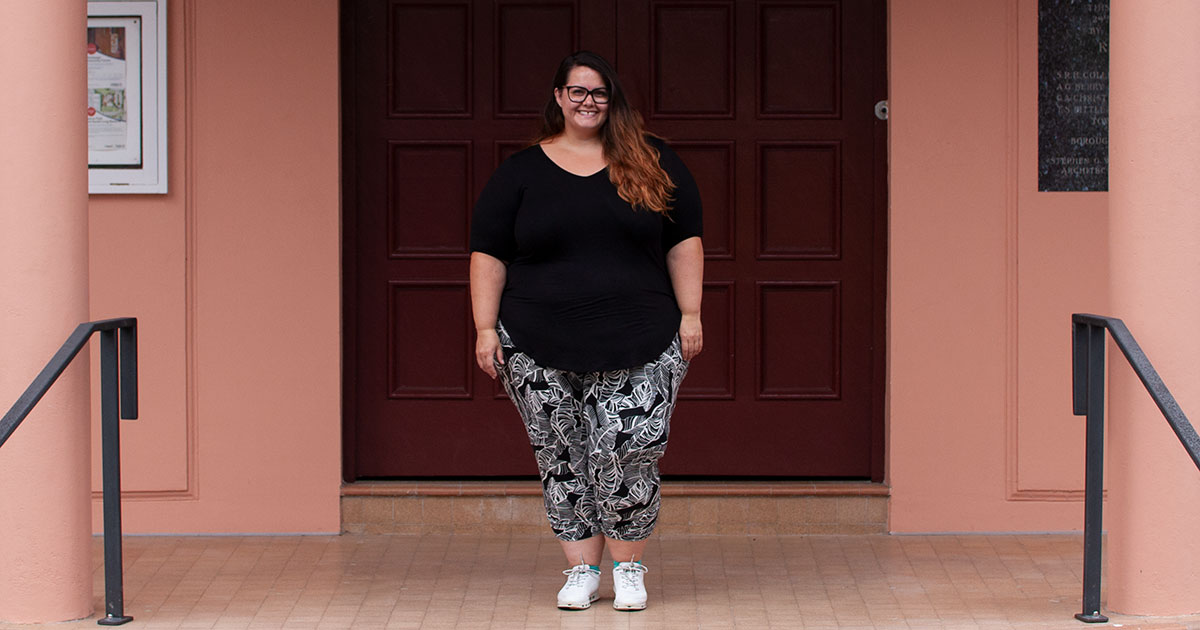
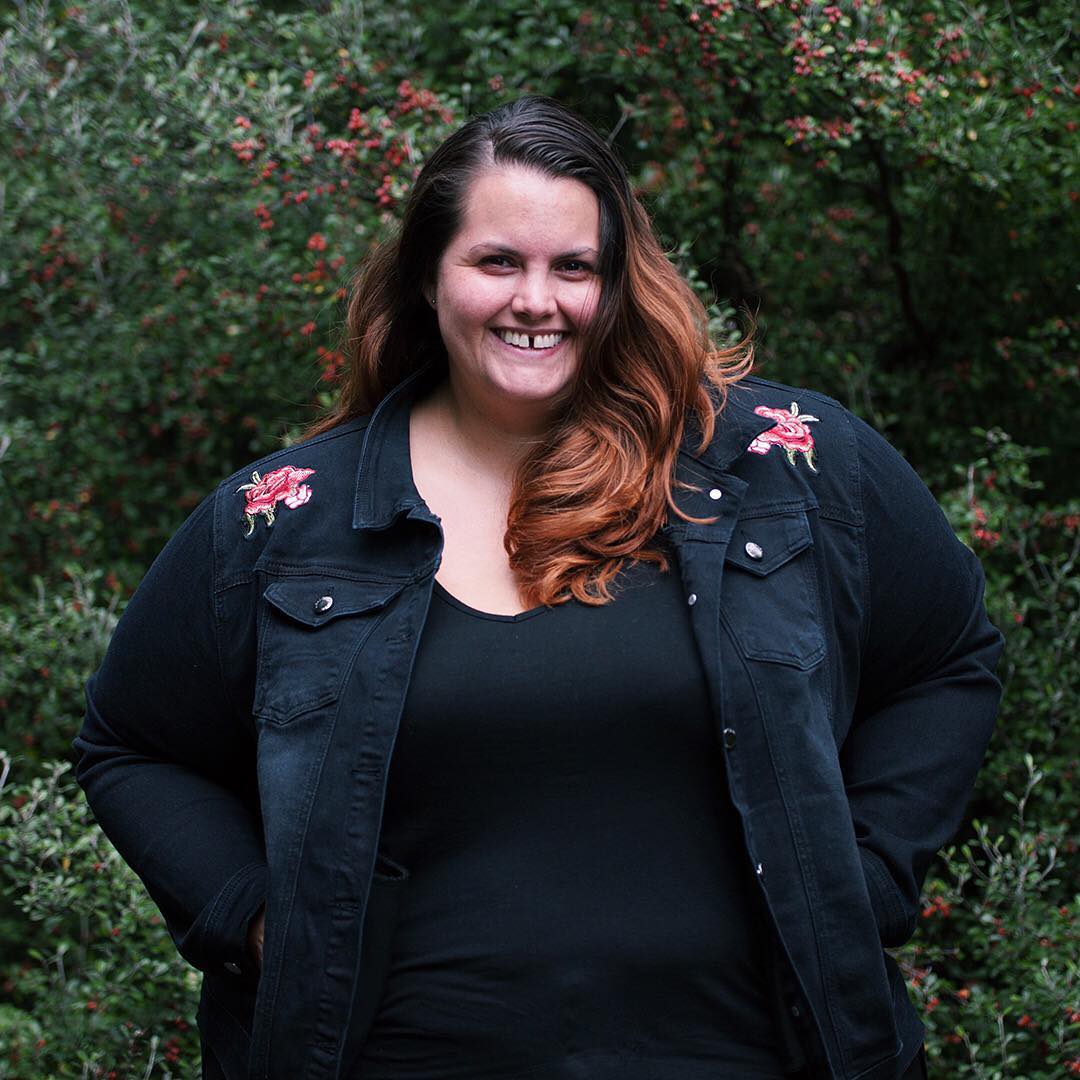
Do you buy much from Ezi-buy? If you so, how do you find their fit for their sizes?
Yes, I’ve been shopping with them since I was a teenager! Their Sara range is pretty consistent, I wear a 26 or 4X which is what I wear in most other places.